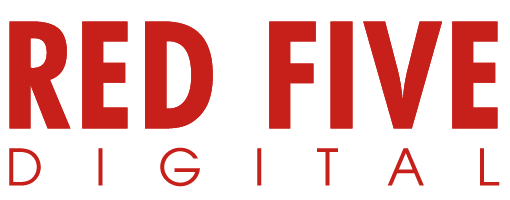In the dynamic landscape of digital marketing, Pay-Per-Click (PPC) advertising stands out as a powerful tool for businesses aiming to amplify their online presence and drive targeted traffic to their websites. However, deploying PPC in isolation can yield suboptimal results. To truly maximize its potential and achieve holistic marketing success, integrating PPC with your overall digital marketing strategy is imperative. This integration not only enhances the effectiveness of individual campaigns but also fosters synergy across various marketing channels. Here’s how you can seamlessly integrate PPC into your broader digital marketing strategy:
Align PPC Objectives with Business Goals
Before delving into PPC integration, it’s essential to define clear business objectives. Whether it’s increasing sales, generating leads, or enhancing brand awareness, align your PPC goals with these overarching objectives. This alignment ensures that every PPC campaign contributes directly to the growth and success of your business.
Comprehensive Keyword Research
Keyword research forms the backbone of any successful PPC campaign. However, its significance extends beyond PPC to other digital marketing channels such as SEO and content marketing. By conducting comprehensive keyword research, you can identify high-value keywords that resonate with your target audience. These insights can then inform content creation, SEO strategies, and even social media campaigns, creating a cohesive marketing approach.
Consistent Brand Messaging
Maintaining consistent brand messaging across all marketing channels is crucial for building brand identity and fostering trust with your audience. Integrating PPC into your overall strategy allows you to reinforce key brand messages across multiple touchpoints. Whether it’s through ad copy, landing pages, or display banners, ensure that your brand’s tone, values, and messaging remain uniform across all channels.
Data Integration and Analysis
Integrating PPC with other digital marketing channels enables seamless data sharing and analysis. By consolidating data from PPC campaigns with metrics from SEO, social media, and email marketing efforts, you gain a comprehensive understanding of your audience’s behavior and preferences. This integrated approach empowers you to make data-driven decisions, optimize campaigns in real time, and allocate resources more effectively.
Cross-Channel Remarketing
Remarketing, or retargeting, is a powerful strategy to re-engage users who have previously interacted with your brand. By integrating PPC with other channels such as email marketing and social media, you can create cohesive remarketing campaigns that target users across multiple platforms. For example, you can retarget website visitors with display ads on social media or include them in email nurture sequences, thereby maximizing touchpoints and increasing conversion opportunities.
Content Amplification
PPC can catalyze amplifying your content marketing efforts. By promoting high-quality content through PPC channels such as Google Ads or sponsored content on social media platforms, you can increase visibility, attract qualified traffic, and nurture leads through the sales funnel. Additionally, integrating PPC with content distribution platforms like Taboola or Outbrain allows you to reach new audiences and drive traffic to your website or blog.
Integration with Social Media Marketing
Social media platforms offer extensive targeting options and unparalleled reach, making them ideal complements to PPC advertising. By integrating PPC with social media marketing, you can leverage audience insights and engagement data to inform PPC targeting and ad creatives. Furthermore, incorporating social proof elements such as user reviews or social media endorsements into PPC campaigns can enhance credibility and drive conversions.
Unified Conversion Tracking
Establishing a unified conversion tracking system is essential for measuring the effectiveness of your marketing efforts across all channels. By implementing conversion tracking pixels or tags consistently across PPC, SEO, social media, and other channels, you can accurately attribute conversions to their respective sources. This unified approach enables you to evaluate the holistic impact of your digital marketing strategy and optimize campaigns for maximum ROI.
Continuous Optimization and Testing
Integration facilitates seamless optimization and testing across multiple channels. By leveraging insights from PPC campaigns to refine messaging, targeting, and creative assets, you can improve performance not only within PPC but also across other marketing channels. A/B testing ad copy, landing pages, and audience segments allows you to identify winning variations and apply learnings to enhance overall campaign effectiveness.
Budget Allocation and Resource Management
Integrating PPC with your broader digital marketing strategy enables more informed budget allocation and resource management. By analyzing cross-channel performance metrics and ROI, you can allocate budget strategically to channels and campaigns that yield the highest returns. This data-driven approach ensures that resources are allocated efficiently, maximizing the impact of your marketing investments.
In conclusion, integrating PPC with your overall digital marketing strategy is essential for achieving synergistic outcomes and driving sustained growth. By aligning PPC objectives with business goals, maintaining consistent brand messaging, integrating data analysis, and optimizing cross-channel campaigns, you can harness the full potential of PPC advertising and propel your business to new heights of success.


